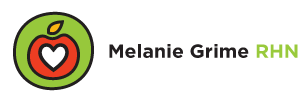Ok let’s not get crazy here of course we need sunscreen. But did you know that direct rays from the sunshine is the best way to get our vitamin D and our sunscreen is blocking it?
You may be surprised to learn that vitamin D is completely different from other vitamins. It is actually a hormone, a steroid hormone that is produced out of cholesterol when your skin is exposed to the sun. For this reason vitamin D is often referred to as the “sunshine” vitamin. Vitamin D is absolutely essential for optimal health.
Why is Vitamin D Deficiency Increasing?
Vitamin D deficiency is at epidemic levels in this country because so many people are now avoiding exposure to sunshine due to the risk of skin damage and skin cancer from UV rays.
People living in Canada where the sun is not strong enough from mid-September to mid-May to stimulate vitamin D production in the skin are at risk of developing a vitamin D deficiency. New research says 95% of those living North of the Equator are likely to be deficient in Vitamin D.
Vitamin D is a fat soluable vitamin meaning that is dissolves in fat or oil and can be stored in the body for a long time. There are two types of vitamin D – D3 found in some animal foods like fatty fish and egg yolks and D2 found in some mushrooms. Of the two we want to focus on D3. There are a few conversions involving the liver and the kidneys that it has to go through in the body in order for it to be used. Check out my maple salmon recipe at the end of this blog and get your vitamin D3 the tasty way!
How Much Vitamin D is Needed?
Sunshine is the best way to get vitamin D. Like I said before vitamin D can be produced out of cholesterol in the skin when it is exposed o the sun. The ultraviolet B rays from the sun provide the energy needed for the reaction to occur. I you live where there is abundant sun year round then you can probably get all the vitamin D you need just by going outside and getting some sun a few days a week.
Keep in mind that you need to expose a large part of your body. If you are only exposing your face and hands then you will produce much less vitamin D. If you are behind sunscreen or glass that you will produce much less or none at all. This makes the advice to use sunscreen to protect against skin cancer highly questionable. It raises your risk of vitamin D deficiency, which may lead to other diseases instead.
I’m not saying not to use sunscreen. Please make sure that sunscreen is used if you are out in the sun for long periods of time or at the hottest part of the day. You NEVER EVER want to burn your skin, that will increase your risk of skin cancer. Get a little sun on your skin for about 20 – 30 minutes and then put on the sunscreen.
Beef, sardines, herring, and salmon are some foods that contain Vitamin D. Supplemental form of Vitamin D can also be taken – speak to your health care provider about the dosage and product that is most appropriate for you and your health concerns.
New research also shows that the medical profession has vastly underestimated the amount of vitamin D required to maintain good health. While Health Canada currently recommends a maximum dose of only 1,000IU daily, experts now suggest many adults need 5,000IU or more each day in winter or whenever exposure to sunlight is limited. Published scientific research has confirmed there is no risk of toxicity from vitamin D3 supplements in doses less than 10,000IU per day.
Vitamin D does the following:
- Maintains bone, joint and muscle health
- Supports the brain and nervous system
- Reduces the risk of cardiovascular disease
- Supports the health of mother and child during pregnancy and lactation
- Strengthens the immune system, reducing the incidence and severity of bacterial infections
- Improves lung function, especially in former smokers
- Reduces the risk of cancer
- Inhibits skin cell growth associated with psoriasis and other skin conditions
- Helps maintain adequate insulin levels for people with type II diabetes
Did you also know that some sunscreen is better than others?
Some suncreens offer inferior sun protection and can contain some harmful ingredients that can disrupt hormones like oxybenxone and vitamin A which is linked to skin damage. Here are some sunscreens to avoid as they will have the most harmful ingredients and may cause more damage than good. If you want a more detailed list go here http://www.ewg.org/2015sunscreen/report/executive-summary/
Avoid:
- Neutrogena
Score poorly and would not make it to European shelves:
- Banana Boat
- Coppertone
- CVS
Best Pick:
- Goddess Garden
- Sunumra Sunkids
- California Baby
- Grahams Natural
- Tripocipal Sands
- Bullfrog
- Biosolis Sun Milk
I’m not surprised if you don’t recognize any of the above best pick brands. To find these head to your closest health food store or look for an organic sunscreen. If all else fails head on over to Amazon and have it delivered to your door. Amazon Canada Sunscreens
Recipe: Maple Salmon
¼ cup maple syrup
2 tablespon gluten free tamari
1 clove garlic, minced
¼ teaspoon garlic salt
1/8 teaspoon black pepper
1 lb salmon, preferably wild
In a small bowl, mix the maple syrup, tamari, garlic, salt and pepper. Place salmon in a shallow glass baking dish and coat with the maple syrup mixture. Cover the dish and marinate the salmon in the refrigerator 30 minutes, turning once.
Preheat oven to 400°F. Place the baking dish in the preheated oven and bake salmon uncovered 20 minutes or until easily flaked with a fork.

